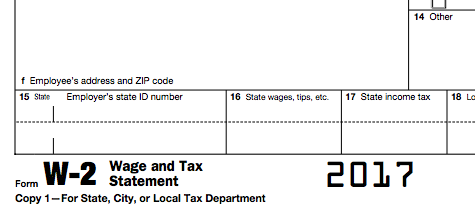
South Kern Sol, News Report, Veronica Morley
According to a local CSU Bakersfield professor, the Senate GOP tax bill could devastatingly affect thousands of Kern County residents hoping to afford higher education and basic health care needs.
On Nov. 30 the Joint Committee on Taxation released an economic analysis of the Senate GOP tax bill stating it would raise the budget deficit by more than $1 trillion over a period of ten years. After revising the bill to address economic concerns, the Senate hurriedly voted the next day to move forward with the bill.
Those who could suffer from this bill in Kern County, according to CSUB Assistant Economics Professor Richard Gearhart, include homeowners, large families, low-and-middle income families, higher-education students, and those who rely on Medical and the Affordable Care Act. “It’s going to reduce the homeownership rate even further, or slow down the growth in the homeownership rate if you cannot deduct as much from your taxes,” said Gearhart.
Gearhart, who has a doctorate in economics from Clemson University and is on the editorial board of the Kern Economic Journal, believes the bill will be signed into law. When it passes, he says it will have a big impact on Kern County residents. “They’re doubling the standard deduction and so fewer people are going to itemize. And a lot of people use the mortgage interest deduction as an itemization tactic,” he said.
In the data analysis on taxfoundation.org, Part V sec 11045 of the Senate GOP tax bill, or “Tax Cuts and Job Act” adds numerous cuts and an elimination of certain itemized deductions in order to pay for the increase in the debt and deficit. California has one of the highest personal and income tax rates in the nation. The new bill will eliminate the option of itemizing those deductions. “Completely eliminating the state and local income tax deduction are going to raise taxes mostly among the working class and the middle class, especially in California,” Gearhart said.
Low income households may be the worst off with the passing of this bill, according to Gearhart. With the removal of the additional tax credits, the impact may increase the debt or the deficit and increase interest rates for borrowed money. Some low income individuals are at a highest risk for repayment and also face the highest interest rates.
However, Kern County residents will benefit from the increase of the itemized deduction that is the Child and Dependent Care Tax Credit. This credit increases depending on the number of children in the household. According to Part III, sec. 11022, this tax credit will increase the credit amount from $1,000 to $2,000.
Programs that supply such things as food stamps, unemployment benefits and health insurance will be reduced. Gearhart believes this will end up costing the middle class as they will have to make up the difference with their own income.
According to Gearhart, residents who have their own businesses, especially small businesses, will receive little to no break with the new bill. If they are an LLC business a small business then they may not get the same pass through benefits that the larger corporations will. “It’s an interesting case,” said Gearhart. “The corporate income tax being lowered should theoretically help small businesses. As long as they create their own corporation.”
The greatest argument the GOP has presented in how this bill will benefit the middle class is the tax cuts provided to larger corporations will result in more money for them to create more jobs. However, that is unlikely. As Jim Tankersley, who reports on taxes and the economy for the New York Times, explained in the NYT podcast the Daily, this type of economic plan never works that way.
Gearhart says that this is because larger corporations will most likely use the money they save on tax cuts to either supply CEOs and others with even more benefits, or they will use the money to further automate, thereby reducing the number of jobs for middle class and low income families.
“You look at even the small businesses that invest in new technology,” said Gearhart. “They’re the ones that are in the national chains like the Jersey Mike’s or for the fast food restaurants. Touch screen kiosks are slowly replacing workers.”
With the passing of this bill tuition waivers and students loans will be counted towards students’ taxable income or gross income. Among CSUB’s thousands of enrollees, graduate students will be hit the hardest as their tuition becomes taxable. At Bakersfield College, nearly every student could be affected. Those dependent on waivers to pay for their first two years of community college could possibly see their free tuition taxed.
Could the bill be the end of the Affordable Care Act (ACA)? In the 2012 Supreme Court case, National Federation of Independent Business v. Sebelius, Justice Roberts declared that the individual mandate, which requires those without health insurance to pay a fee, a tax. The new bill will repeal this mandate, which Gearhart explained could essentially kill the ACA.
He stated that if middle and lower income individuals do not receive healthcare through their employer they will have to pay for it on their own or go without. Gearhart points out that someone bringing home an added $100 a month might have to pay for health insurance that cost $1,200 a month. He also said the repeal of the individual mandate and the ACA could also result in the end of the Children’s Health Insurance Program commonly known as CHIP, which was created to ensure that children receive the proper health care they need even if their parents do not have coverage themselves.